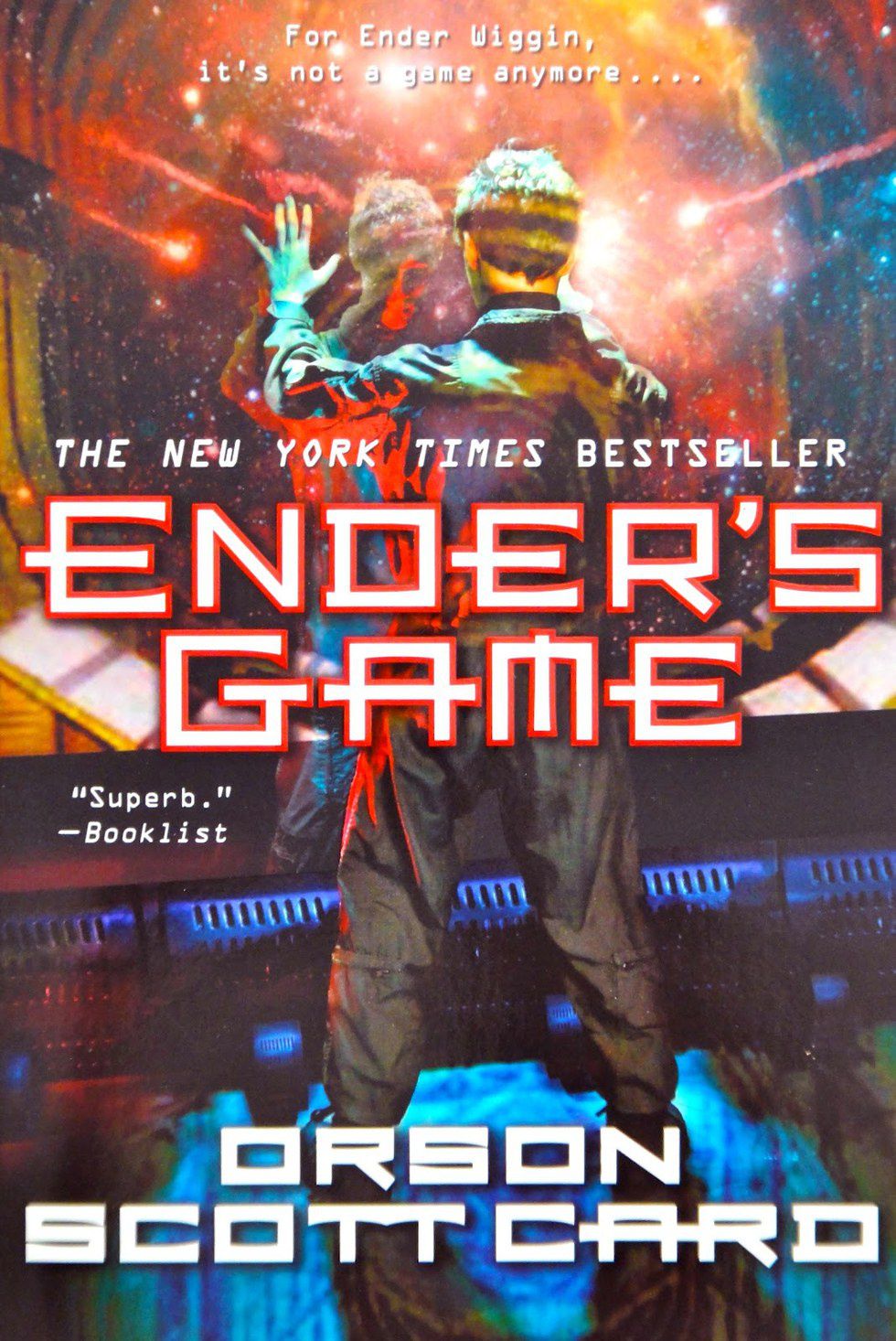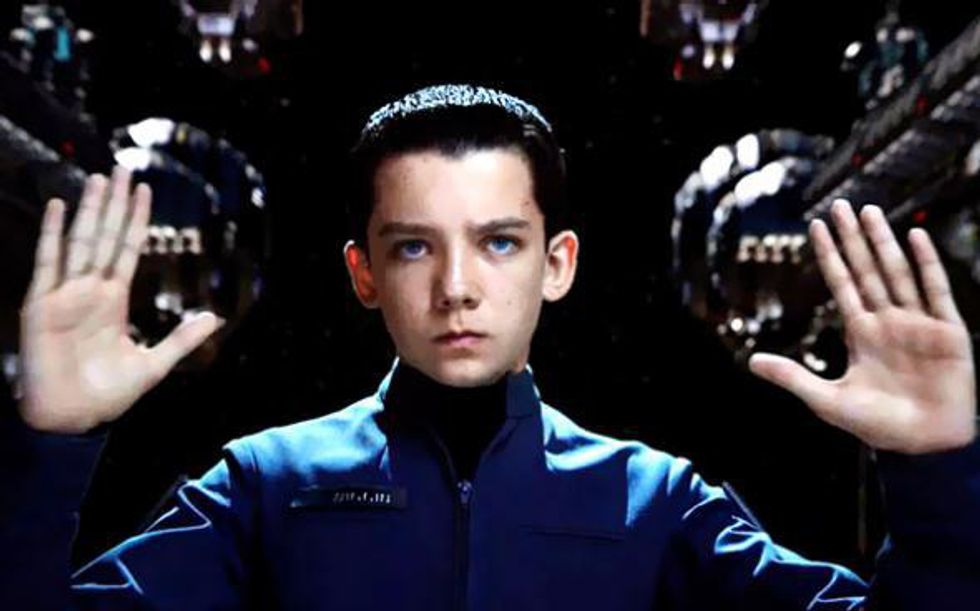This week, I finally sat down to read "Ender's Game" by Orson Scott Card, mostly due to the constant persisting of certain people (you know who you are). I'd heard about the book a million times before. I'd seen the cover in almost every young adult section in Barnes and Noble. There are a few books in the children's lit/young adult realm that continue to fly off the shelves despite the years. We've all heard of the Harry Potters, the Percy Jacksons and the Twilights of the book market. And most of us have read them (or at least seen the movies). But the series following Ender Wiggin had alluded me for quite some time, mostly due to genre. My experience with hardcore science-fiction has been severely lacking, and for many years I passed over this series, and several other young adult science-fiction classics. But it was time give these novels a fighting chance. And in the end (pun intended), I found myself both perplexed and satisfied with the story and its characters.
For a little background, the "Ender's Game" series started out haphazardly in the 1970s, when Card first published a short story about Ender in "The Analog of Science Fiction and Fact." He had long been fascinated by how military strategy would need to be altered if micro gravity entered the picture. After some success with the shorter pieces, Card wrote the full novel and published it in 1985. It received both critic acclaim and skepticism. Previously, the literary world had not seen a story in which a child is used as a military tool to aid in an alien war effort, at least not to this degree (those who have read the book know exactly what 'degree' I'm referring to). Some wondered if it was taking a step too far. Others thought of it as a breakthrough in how we look at the capabilities and skills of children. It's possible that this ongoing debate caused the buzz that eventually lead to Card winning the Hugo Award, the Nebula award and the Locus award in 1985 and 1986.
The book has continues to be discussed and critiqued over the 30 years that it has now been in print. Critics have brought new elements into the debate, such as the author's political beliefs and homophobic tendencies, as well as reaction to the film version of the story, released in 2013. Personally, although I enjoyed the book, I still had problems with it. Ender's character felt too changeable at times; I needed more Valentine in my life, and I wanted more understanding as to what caused the human race to develop the way it had in this novel. Many others have had critiques similar to mine and found issue with other elements as well, such as the ages of these kids at the beginning of the novel.
However, I think that it might be this shocking story line that causes the book's success, as well as its downfall. As adults, we're scandalized by the idea of a child talking like an adult, making adult decisions, carrying out extremely adult orders. But as kids, the idea that an author is willing to recognize the brainpower and understanding that children possess is highly appealing. And we've seen this before. It's inspiring, despite the widespread destruction, to read about a kid who took on a seemingly unbeatable force (Harry Potter, anyone?). So we keep reading, edition after edition, to see these characters who are extremely compassionate, capable and committed to their efforts.





















